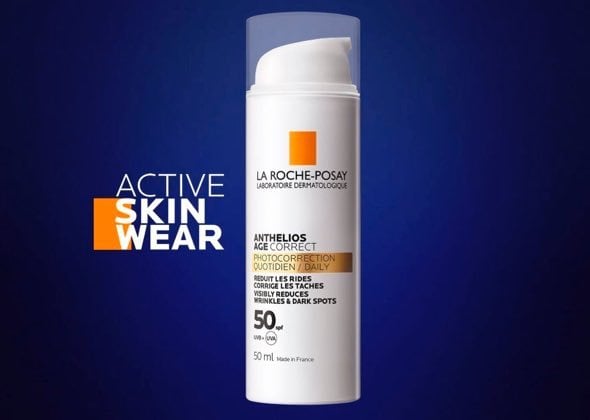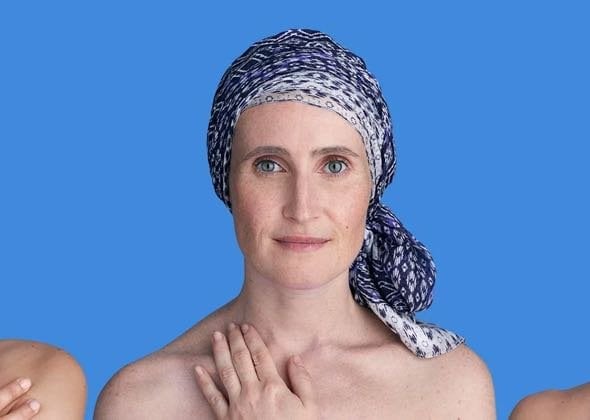We zijn voortrekkers van wetenschappelijke innovaties die je de beste dermatologische oplossingen bieden met de best verdragen ingrediënten.

sun filters
What are Sun filters ?
Sun filters are essential ingredients that protect the skin from sun damage and prevent the risks of skin cancer such as melanoma as well as sunburn, premature aging of the skin, or the appearance of spots.
Organic filters absorb UVA and UVB rays, while mineral filters reflect mainly UVB radiation and less UVA radiation.
Each sun filter provides a specific type of protection, which is why sunscreen products or daily photo-protection products (day cream with SPF) are usually composed of a combination of filters to ensure the broadest protection.
To identify sun filters in our products, take a look at the ingredients list on packaging. They can be found under the names DROMETRIZOL TRISILOXANE = MEXORYL XL, OCTOCRYLENE, bis-ethylhexyloxyphenol methoxyphenyl triazine = Tinosorb S (organic filters), TITANIUM DIOXIDE, ZINC OXIDE (mineral filters).
What are they used for ?
Sun filters are ingredients used in sunscreen and skincare products to protect the skin from sun damage. Sunscreens prevent the risk of skin cancer by protecting the skin from UVA and UVB rays. They protect against skin reactions and sunburns. They protect the skin from premature ageing by preventing UVA rays from penetrating deeper into the skin.
Where do they come from ?
Sun filters consist of mineral compounds (originating from rocks and which reflect UV rays) or transformed organic compounds (originating from carbon and which absorb UV rays)
Why and how do we use them ?
We use sun filters only in products where they are required to protect the skin from sun damage (skin cancer, sunburn, premature aging of the skin, appearance of spots).
A regular application of sunscreen helps maintain the protective effects on skin. We develop various products and textures (sprays, mists...), encouraging consumers to use sunscreen and reapply them as often as necessary.
We always choose a combination and quantity of filters that provide both an optimal level of protection and tolerance, coupled with a minimal environmental impact.
All of our products undergo a strict evaluation of their quality and safety for humans as well as for the environment before they are placed on the market. This is a fundamental principle that we apply everywhere our products are sold.
For more than 20 years, our environmental research laboratory has been working to understand and always improve the impact of our sunscreen products on the aquatic environment.
To benefit from the latest scientific advances, we collaborate with research teams of excellence such as the Monaco Scientific Center, the Criobe and the Tara Foundation. In fact, the Monaco Scientific Center and L’Oréal Research & Innovation have just published their findings on the absence of harmful effects of UV filters used in cosmetics on the photosynthetic activity of corals.
Why are they questioned ?
Certain organic filters are accused of causing allergies, while others are pointed out as being endocrine disruptors. Mineral filters - when in nanometric form - are suspected of crossing biological barriers like the skin or mucous membranes, and spreading into the body, causing certain types of cancer. Lastly, sun filters are said to impact the environment and in particular coral reefs.
Facts:
- Sun filters are not endocrine disruptors according to the definition of the World Health Organization, whose role is to direct and coordinate international health within the United Nations.
- In nanometric form, they are safe, as confirmed by the EU Scientific Committee on Consumer Safety (SCCS), and do not cross the skin barrier.
- Finally, the scientific community believes that coral bleaching is mainly due to the rise in ocean temperatures due to global warming, and not to the presence of sunscreens in the oceans. The recognised secondary causes of this bleaching are overfishing, improper treatment of urban effluent or water runoff from farmland polluting the lagoons. For more information, see the following articles (available in English only):
No, your sunscreen isn't killing the world's coral reefs
The Carbon Brief Interview: Prof Terry Hughes
The worlds coral reefs are dying
Sunscreen in the News: What is True and What is Not

WIJ WORDEN AANBEVOLEN
DOOR MEER DAN 100.000 DERMATOLOGEN
WERELDWIJD*
*Bron: onderzoek naar de dermocosmeticamarkt uitgevoerd door IQVIA en andere partners (Ipsos, TNS) tussen september 2017 en augustus 2018 onder dermatologen in 59 landen die meer dan 80% van het wereldwijde bbp vertegenwoordigen.





